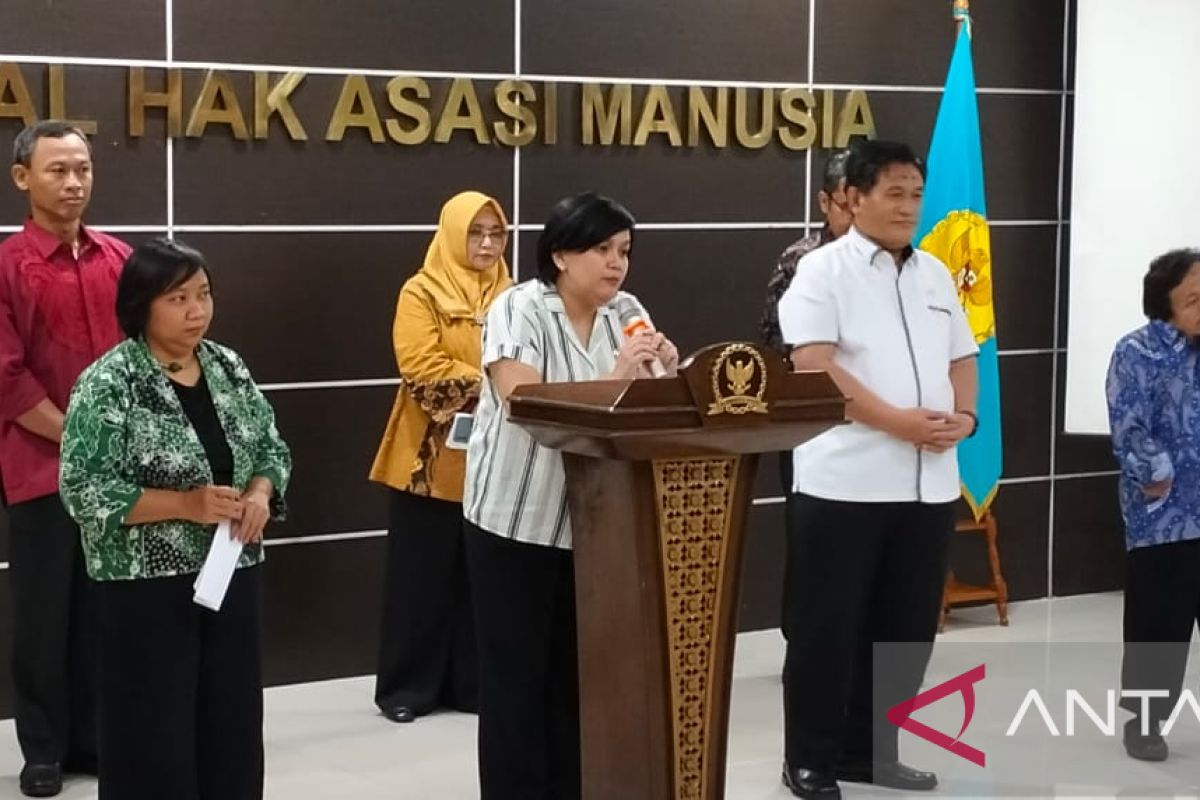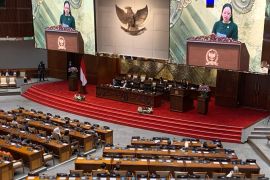"The National Human Rights Commission expects that changes and improvements to the criminal law system will (still employ) respect, protection, and fulfillment of human rights," chairperson of the commission, Atnike Nova Sigiro, said here on Monday.
The commission has highlighted some aspects in the latest version of the draft, she informed. For example, the criminal acts involving gross human rights violations in the code have mostly been adopted from Law Number 26 of 2000 concerning the Human Rights Court.
The principles that apply to gross human rights violations, which the code describes as serious crimes against human rights, are not the same as those for ordinary crimes even though in the code, they are called special crimes, she explained.
She said that gross human rights violations are covered by the principle of retroactivity and the principle of no expiry date. If the code does not include these two principles, then the 15 incidents of gross human rights violations on which investigations have been completed can be considered non-existent, or said to have never happened.
"In fact, we can still find victims of these incidents," she added.
Related news: Lack of evidence stalls human rights violations settlement
According to an analysis by Komnas, there is a tendency toward reduced imprisonment in the draft criminal code compared to Law Number 26 of 2000 on the Human Rights Court. For instance, for the crime of genocide, the Human Rights Court Law prescribes a minimum prison sentence of 10 years and a maximum of 25 years.
Meanwhile, in the code, the minimum sentence is 5 years. This is stated in Article 598 of the November 30, 2022, version of the draft criminal code.
Further, for crimes against humanity, the Law on Human Rights Court prescribes a minimum prison sentence of 10 years and a maximum of 25 years. However, in the draft criminal code, imprisonment depends on the alleged offense and can range from 5 to 20 years. This has been laid down in Article 599 of the draft criminal code.
In the latest version of the draft criminal code, the maximum sentence is only 20 years so the special nature of the offense (extraordinary crime) of gross human rights violations is reduced to the level of ordinary crimes.
“Thus, the expectations or aspirations of the law to create a deterrent effect (retributive aspect) and no repeated action become unclear," she said.
The regulation of genocide and crimes against humanity in the draft criminal code could take the weight of these crimes lightly; the concern is when the consequences of extraordinary crimes become the same as those of ordinary crimes, she noted.
This bears the risk of obscuring the nature of the crime and is likely to introduce difficulties in ensuring effective prosecution or the settlement of crimes, which would include legal ambiguity or uncertainty with other legal instruments that contain regulations on crimes outside the Criminal Code and have potential gaps, she informed.
Related news: Resolution of human rights violations depends on political will
Related news: Resolve human rights violations through restorative justice: Ministry
Translator: M Zulfikar, Mecca Yumna
Editor: Suharto
Copyright © ANTARA 2022












